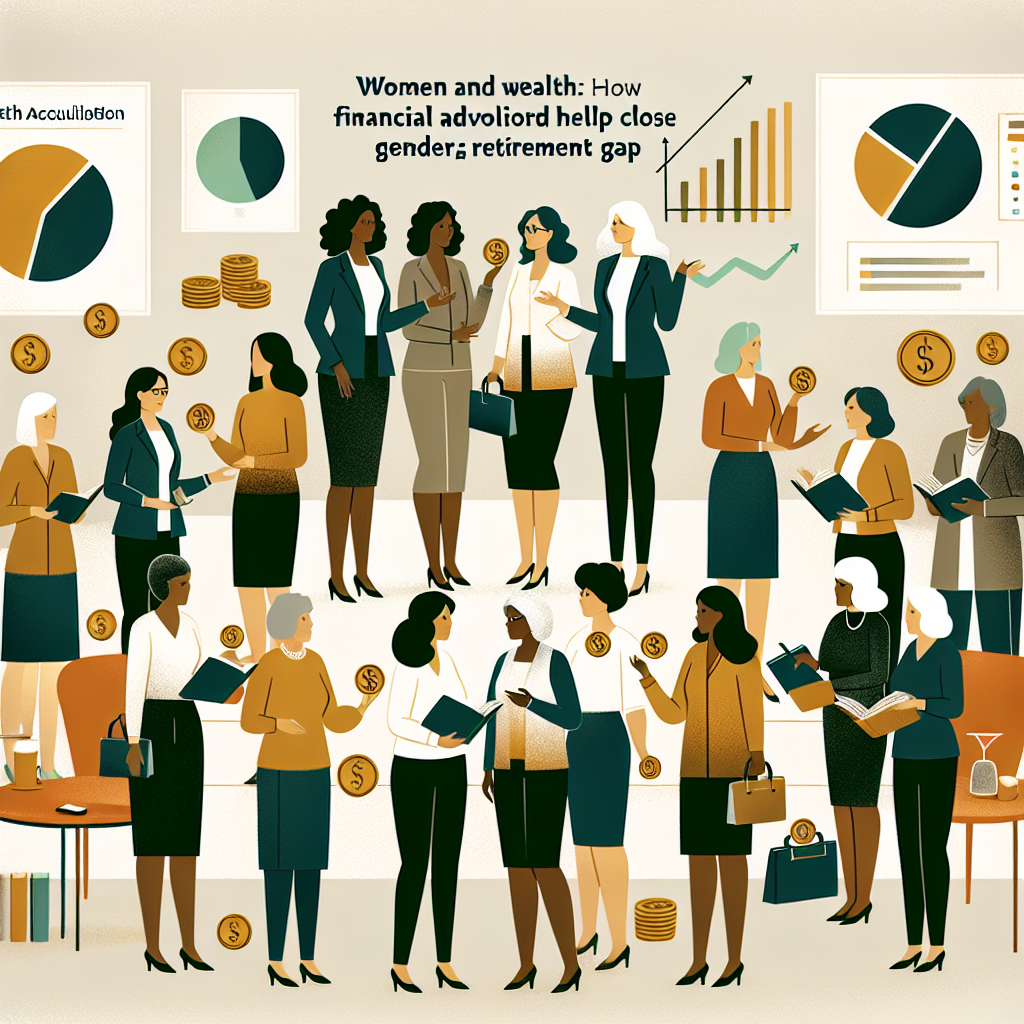
The gender retirement gap. It’s real, and it’s hitting women hard. We need to address this issue head-on. Women, on average, retire with two-thirds the wealth of men. Why is that, and how do financial advisors come into play? Let’s dive into the details.
Contents
- 1 Understanding the Gender Retirement Gap
- 2 The Role of Financial Advisors
- 3 Factors Contributing to the Gap
- 4 How Can Women Take Charge?
- 5 Questions Financial Advisors Should Ask
- 6 Addressing Social Security and Pensions
- 7 Bridging the Investment Gap
- 8 Final Thoughts
- 9 How can you actively close the gender retirement gap?
Understanding the Gender Retirement Gap
First things first. The gap exists because women typically earn less over their careers. This isn’t just about salary differences. Women tend to take more career breaks to care for family. Because of longer lives, they also spend more time in retirement. That means they need more money to last.
Financial advisors can change the game here. They play a crucial role in educating and guiding women towards better financial futures. So, how exactly can they help?
The Role of Financial Advisors
Education and Awareness
Financial literacy is key. Advisors can educate women on critical topics like investment strategies and retirement planning. More education means more confidence. And when women have confidence in their financial knowledge, they’re more likely to make smarter investment decisions.
Personalized Strategies
Women’s financial needs differ from men’s. Advisors can create customized plans that consider these unique requirements. Whether it’s accounting for career breaks or planning for a longer lifespan, bespoke strategies make all the difference.
Encouraging Risk-Taking
Women are generally more risk-averse. Financial advisors can help them understand risk and encourage smarter, yet bolder, investment decisions. Taking calculated risks often leads to better returns over time.
Factors Contributing to the Gap
Here’s a breakdown of some contributing factors:
| Factor | Explanation |
|---|---|
| Earnings | Women typically earn less than men, impacting savings and retirement funds. |
| Career Breaks | More frequent career interruptions for caregiving reduce retirement savings. |
| Longevity | Women live longer, requiring more retirement funds. |
| Social Security | Lower lifetime earnings result in reduced Social Security benefits. |
| Investment Approach | More conservative investment strategies can lead to lower returns. |
How Can Women Take Charge?
Start Early
The earlier you start saving, the better. Compound interest works wonders over time. Working with an advisor to begin retirement planning early can significantly close the gap.
Seek Expert Advice
Don’t be shy. Consult with financial advisors who understand the unique challenges women face. These experts can provide insights and create strategies tailored to individual needs.
Stay Informed and Educated
Knowledge is power. Attend workshops, read books, or follow financial blogs. Stay updated on financial trends and strategies. This helps make informed decisions, leading to a more secure future.
Investment Shoax – Women and Wealth
Questions Financial Advisors Should Ask
What are your unique retirement goals?
Financial advisors need to understand unique goals. Do you plan to travel? Start a business? Understanding your aspirations helps craft a personalized financial plan.
How much risk are you comfortable with?
Risk tolerance varies greatly. Some avoid risk like the plague; others embrace it. Discussing this with an advisor ensures your investments align with your comfort level, allowing you to sleep soundly at night.
How do you plan to handle career breaks?
Discussing career breaks is essential. Advisors can suggest strategies to maintain financial health during periods of reduced income. Understanding these options can alleviate stress and ensure preparedness.
Addressing Social Security and Pensions
Women often rely on Social Security and pensions. However, these may fall short, particularly for those with lower lifetime earnings. Financial advisors can help navigate these waters.
Maximize Benefits
Advisors can guide women on maximizing Social Security benefits. This often involves delaying claims. While it means waiting longer, the payoff can be significant in the long run.
Pensions and Annuities
Pensions are becoming scarce, but some women still have access. Understanding pension options, like lump-sum payouts versus annuities, is crucial. Advisors can help assess these options for optimal benefits.
Bridging the Investment Gap
A big part of closing the retirement gap lies in how women invest. Unfortunately, many women invest too conservatively.
The Importance of Diversification
Diversification reduces risk and enhances potential returns. It’s essential to not put all eggs in one basket. Advisors can assist in creating a balanced portfolio that aligns with risk preferences and financial goals.
Stock Market Savvy
Investment in stocks can yield excellent returns. However, fear often keeps women away. Financial advisors can demystify the stock market, explaining terms and strategies in ways that are easy to understand.
Final Thoughts
The gender retirement gap isn’t insurmountable. With the right guidance from financial advisors, women can rewrite their financial futures. It’s all about awareness, strategy, and taking action.
Related Sources
For a deeper dive, check out Forbes on Women and Financial Planning and CNBC’s Insights on Gender Wealth Disparities.
How can you actively close the gender retirement gap?
Engage in Financial Planning Early
The earlier you plan, the better equipped you’ll be. Early planning helps build a robust financial foundation.
Prioritize Career Advancement
Focus on career progression. Minimizing career breaks and negotiating salaries can impact retirement savings positively.
Utilize Employer Benefits
Many employers offer benefits like 401(k) matching. Leverage these to boost retirement savings.
These steps can make a significant impact. With active involvement and expert guidance, closing the gender retirement gap is achievable.
In this rapidly changing financial landscape, ensuring women’s financial security is imperative. Let’s work together with financial advisors to create a level playing field for everyone.






